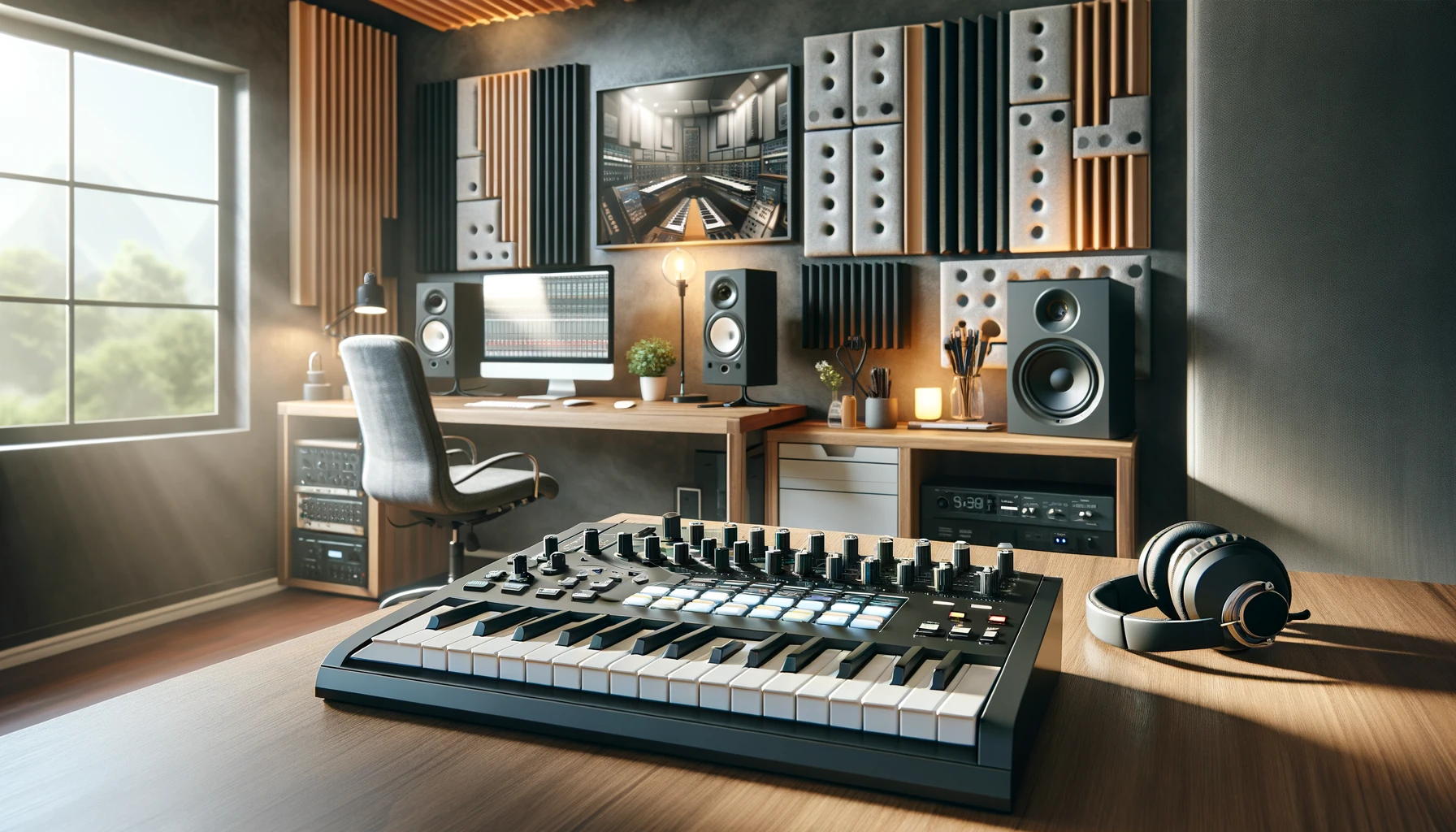Do you need both a MIDI controller and a digital piano for your home music studio?
While owning both pieces of gear allows for greater creative flexibility, purchasing just one optimized for your needs may be the best option depending on your budget, goals and current equipment owned.
Let’s explore the key differences between MIDI controllers versus digital pianos along with pros, cons and alternatives to help determine the right fit for your studio setup goals and budget.
Now, let’s dive in…
Should You Buy Both MIDI Controller and Digital Piano?
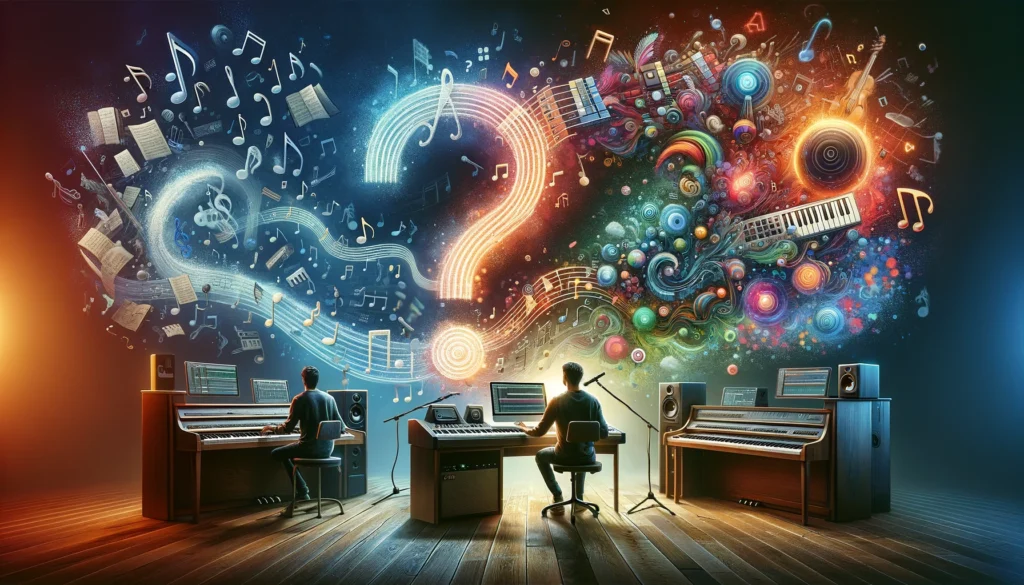
Ideally, yes – owning both tools provides the greatest creative flexibility as a pianist, composer and producer.
The authentic piano tones from the digital piano combine excellently with the manipulative power of the MIDI controller.
However, limited budgets may require choosing just one optimized for your specific musical needs.
We’ll analyze the pros, cons and alternatives below to help decide what is right for your studio.
What is a MIDI Controller?
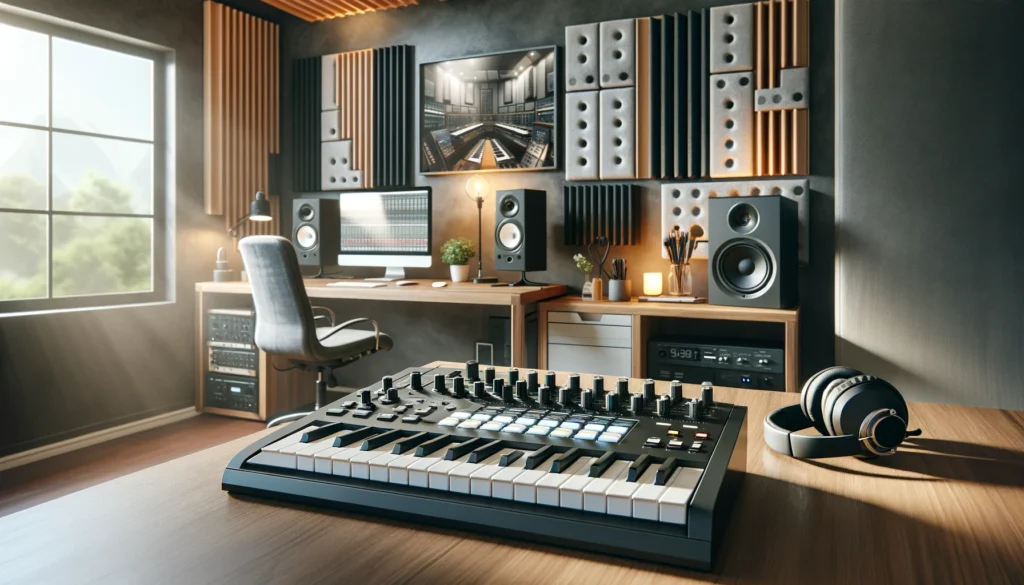
A MIDI controller is a device that allows you to control and manipulate virtual instruments and MIDI software.
The acronym MIDI stands for Musical Instrument Digital Interface.
This is a protocol that allows musical data and signals to be transferred between electronic instruments, software and devices.
Common features found on MIDI keyboard controllers include pads, knobs, faders and buttons that can all be mapped to control parameters in external sound sources or software.
For example, the pads may be used to trigger drum samples, the faders could control volume levels and the knobs can be assigned to effects like reverb or filters.
The benefits of using a MIDI controller include increased flexibility, portability and seamless integration when used to manipulate external MIDI software and virtual instruments.
What is a Digital Piano?
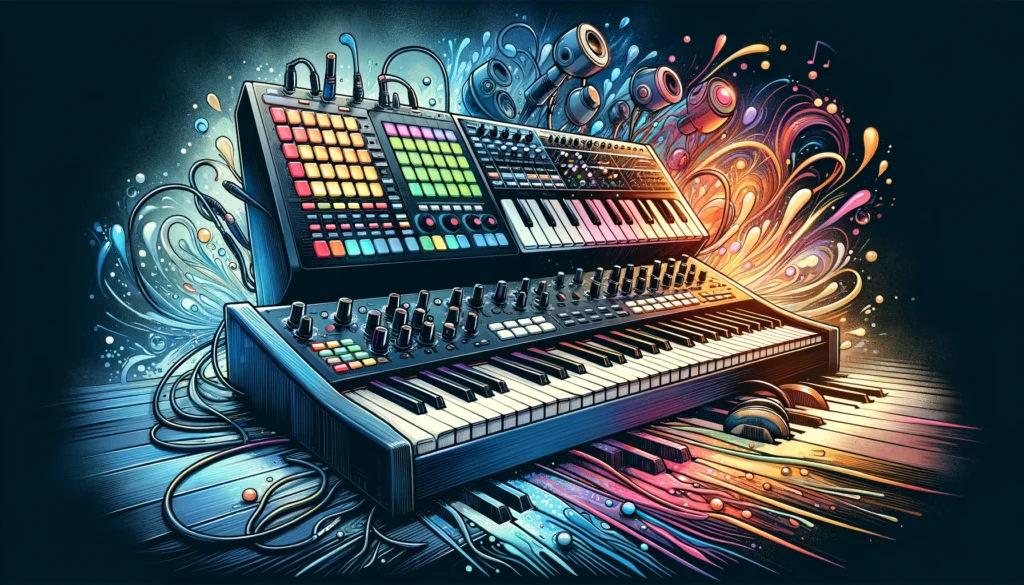
A digital piano is a keyboard instrument designed to mimic the sound and feel of an acoustic piano through digital sampling and modeling technology.
Unlike MIDI controllers, digital pianos focus on producing authentic piano tones using their own built-in sounds and tones rather than controlling external sound sources.
Common features found on most contemporary digital pianos include weighted hammer-action keys with touch sensitivity that mimic the feel of real piano keys.
They also come equipped with sustain pedals and other onboard controls that aim to provide an authentic piano playing experience.
Some benefits of owning a digital piano include having access to a wide variety of high-quality piano sounds in a relatively compact instrument that takes up less space than an acoustic upright or grand piano.
Key Differences Between the Two
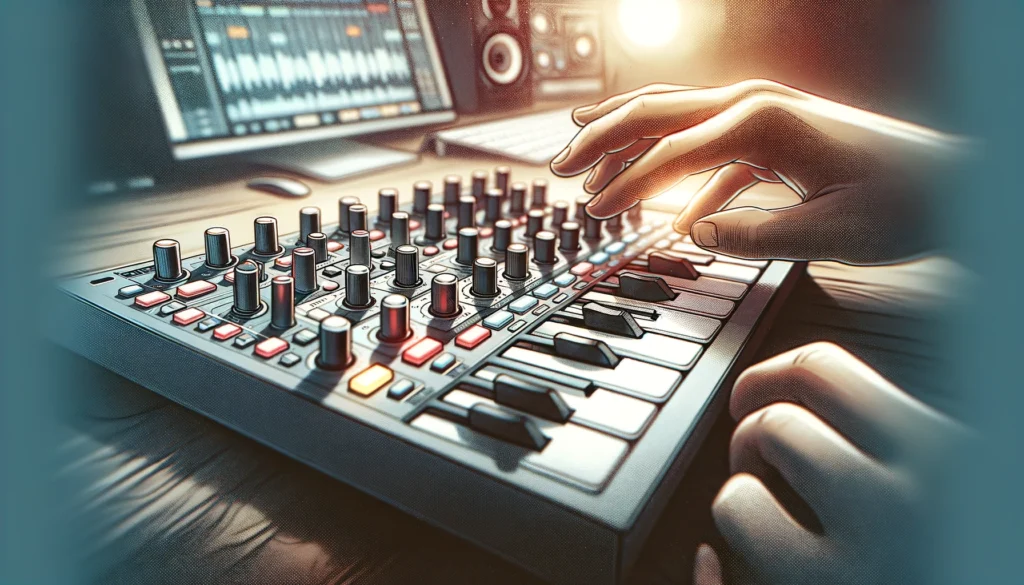
There are some notable key differences between MIDI keyboard controllers and digital pianos that are important to keep in mind.
MIDI keyboard controllers are designed primarily for controlling external MIDI sounds and software instruments rather than producing their own sound.
Their focus is more on portability, flexibility and manipulation of sound through assignments like pads, faders and knobs.
On the other hand, digital pianos aim to reproduce the feel and onboard sound set of an acoustic piano, focusing more on providing an authentic stand-alone piano playing experience.
While MIDI controllers offer greater flexibility working with production software and virtual instruments, digital pianos strive to offer a self-contained piano substitute capable of being played on its own without any external sound sources or software required.
So in summary – MIDI controllers are flexible, portable production tools for controlling software while digital pianos seek to fully emulate the visual aesthetic and familiar playing experience of a real piano in a more compact digital unit.
Should You Buy Both?
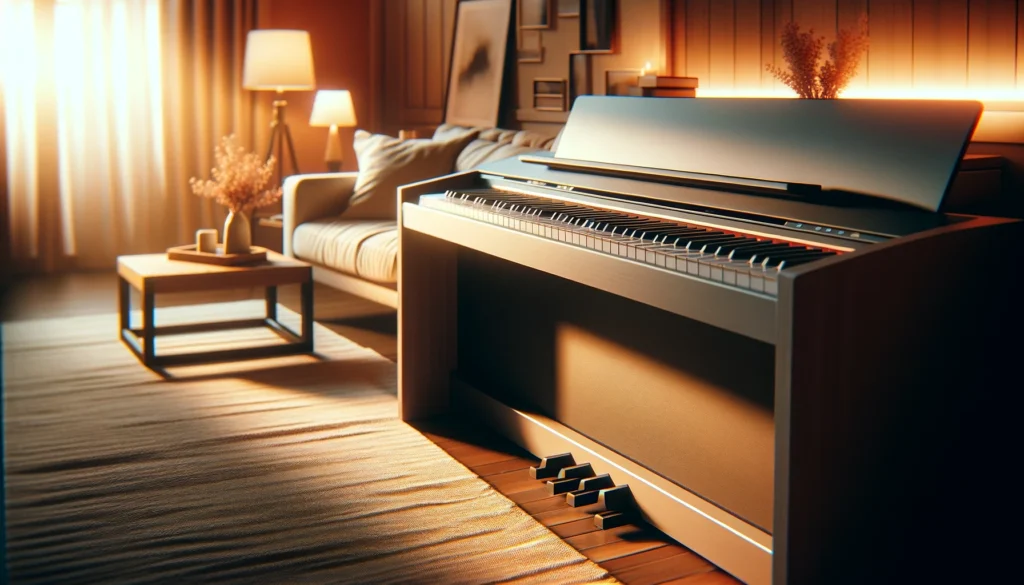
If budget allows, owning both a MIDI keyboard controller and a digital piano can be a great combination for the home studio.
The MIDI controller setup complements piano practicing, allowing you to take breaks from the piano to produce beats, mix tracks and trigger samples using the pads, faders and knobs.
This seamless integration between piano playing and music production gives you more creative options.
In addition, using both provides sonic flexibility.
The authentic piano tones from a digital piano sound excellent when recording into production software for professional accompaniment and melody parts.
Meanwhile the MIDI controller gives you access to a wide palette of synth tones, electronic drums, samplers and more for adding variety to your tracks.
So while they both have crossover uses, each piece of gear fills a different musical purpose in a home studio setup.
The MIDI controller handles the music production and manipulation duties while the digital piano focuses on piano playing and practice.
Using this to your advantage allows you to get the best out of both gear types.
Factors to Consider
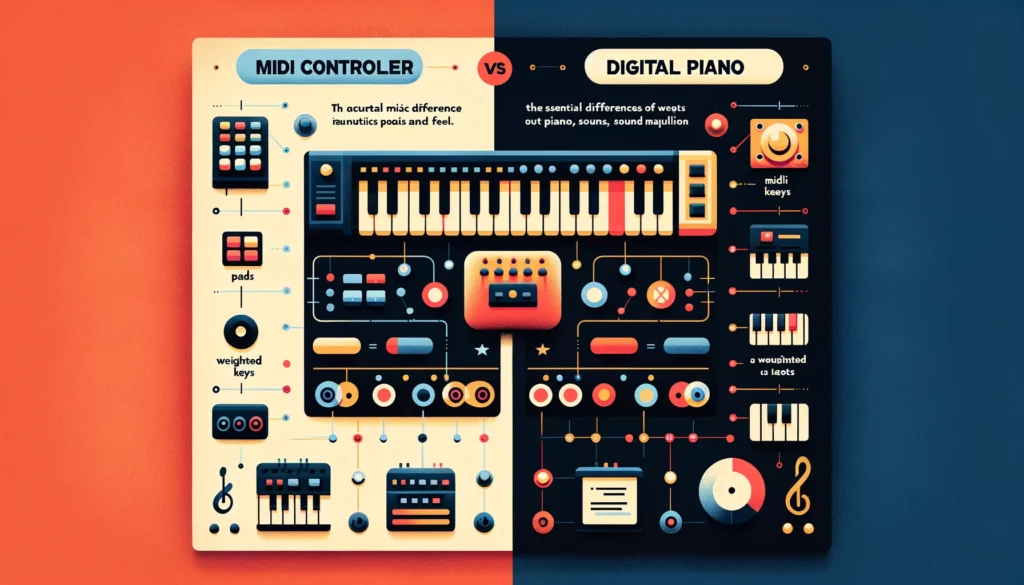
When deciding whether to purchase both a MIDI keyboard controller and a digital piano, there are several factors to take into consideration:
Budget Limitations
What is your overall budget for acquiring new musical home studio gear? You will need to consider the costs of buying both instruments combined.
Entry-level digital pianos and MIDI controllers individually can range from $300-$500 with prices going up significantly for more premium professional models.
Set a firm budget limit before shopping.
Current Equipment Owned
Take stock of what you already own in terms of existing piano keyboards, MIDI controllers, software instruments and more.
If you already own one of the two instruments being considered, focus your efforts on filling the missing piece of gear you need to complete your setup.
For example if you already own a nice MIDI controller, shopping for a digital piano may be the priority.
Types of Music You Create/Perform
An important consideration is weighing what types of music you are creating and performing most frequently.
Someone focused on piano-centric compositions like classical or jazz would benefit most from the authentic playing experience of a high end digital piano.
Music producers working heavily with electronic music genres may get more mileage from a versatile MIDI controller.
Tips for Choosing Between the Two
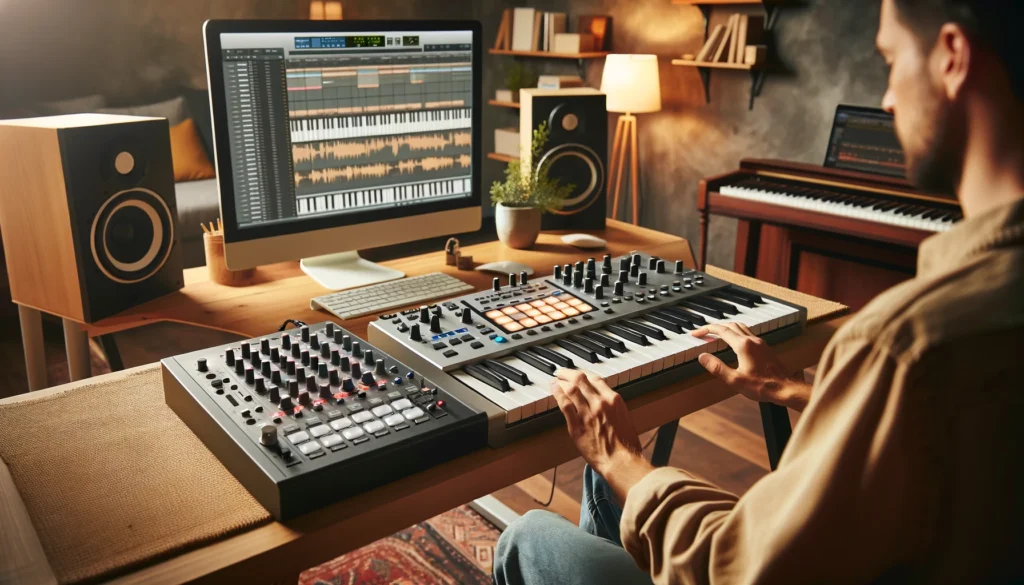
If purchasing both a MIDI keyboard controller and digital piano is not currently feasible budget wise, here are some tips for deciding which one deserves higher priority:
Prioritize Needs
Think about your current musical needs and which device aligns closer with your goals.
If piano playing for practice, lessons and technique refinement is most vital, invest in the best digital piano you can afford first.
For those focused on composition in genres like EDM, hip hop or electro, the flexibility of a MIDI controller may outweigh immediate needs for a digital piano experience.
Consider Bundle Deals
Shop around for MIDI keyboard controller bundles that come equipped with MIDI beats making software included.
This adds good value as long as you find the bundled software useful for your production needs.
Also some keyboard controllers offer light-up guided keys that can help with piano education.
These combo deals increase functionality without requiring you to purchase a separate digital piano.
Think Long Term
Consider making fewer but more strategic high-quality investments that will last instead of buying more affordable equipment that you are likely to outgrow quickly.
Entry level instruments often lack key features more advanced players require.
Save up if needed to get durable gear with professional features that leaves room to grow into.
This avoids frequent upgrades and wasted purchases.
Alternatives and Compromises
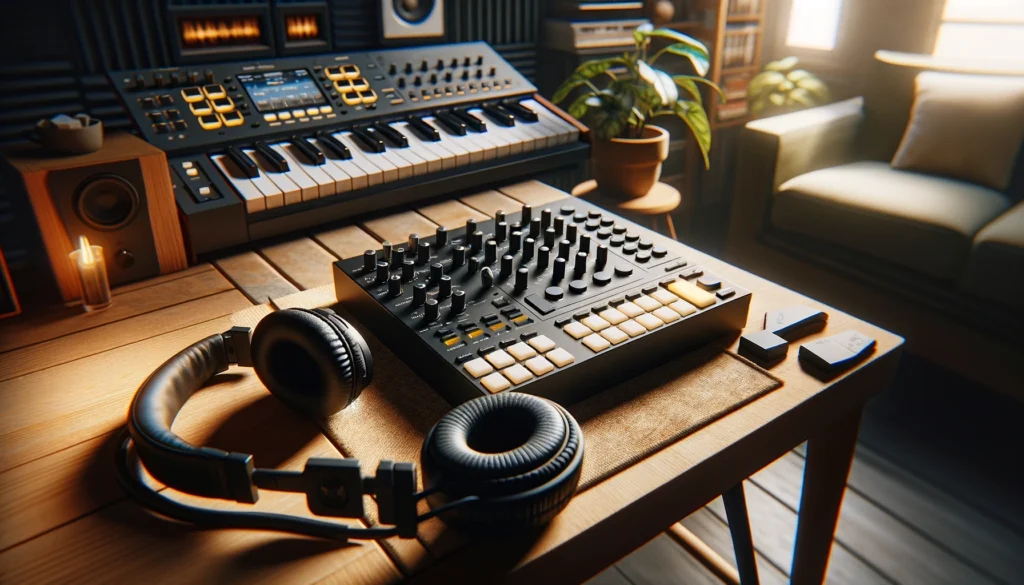
If purchasing both pieces of gear is not currently possible after factoring in your budget, equipment owned and musical needs, here are a few alternatives and compromises worth considering:
MIDI Keyboard Controllers with Weighted Keys
There are MIDI keyboard controllers on the market that come with weighted hammer action keys borrowed from digital piano designs.
While these do not have the complex piano modeling effects found in high end digital pianos, it allows for more realistic dynamics and technique practice versus unweighted synth action keys.
Affordable Starter Versions of Both
Invest in basic affordable models of both a MIDI controller and digital piano that have room for expansion.
For example, some MIDI controllers offer affordably priced simplified models but give you the ability to purchase separate expansion packs later as your sound library grows.
Entry-level digital pianos often have basic sounds but allow you to eventually upgrade with better sound engines for more realistic tones.
Quality Headphones for Quiet Digital Piano Practice
If a compact digital piano needs to be temporarily substituted for a full weighted MIDI controller keyboard, investing in a quality pair of closed-back headphones can allow you to practice quietly at night while familiars sleep close by.
The headphones produce clear sound directly to your ears so volume can be kept low.
Owning both tools is ideal but requires significant gear investment.
With some savvy shopping, compromise and creativity however, it is possible blend both tools into your setup over time even with limited budgets and space constraints.
Weigh all your current needs carefully while evaluating your long terms goals.
This allows smarter musical equipment buying decisions that provide room for growth as your skills progress.
Conclusion
In summary, while owning both a MIDI controller and digital piano is beneficial for home music studios, carefully evaluate budget and musical goals to decide if purchasing just one optimized choice suits your current needs.
Seek out bargains, bundle deals and interim quality headphones as needed while weighing longer-term equipment goals.
With so many choices now available, creatively blending these affordable music technologies can enhance your capabilities as both pianist and producer.
